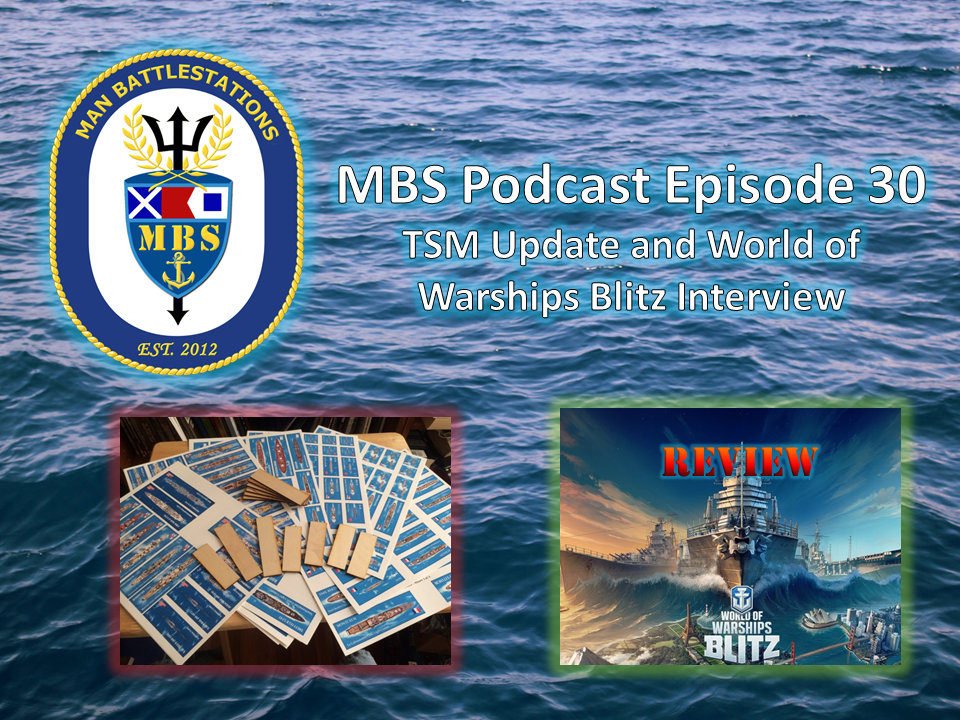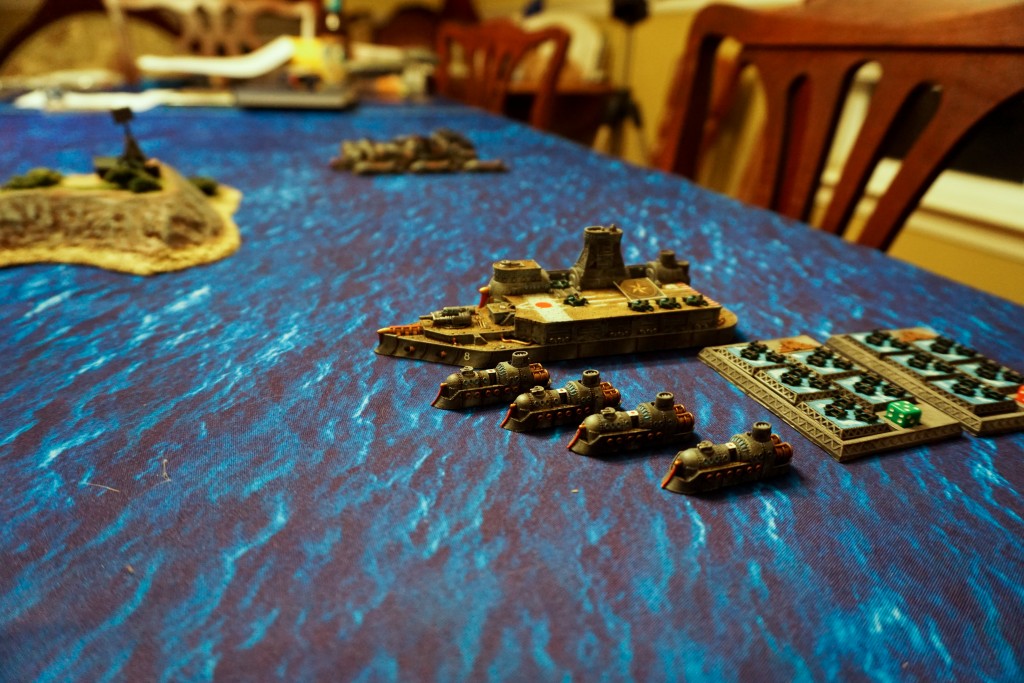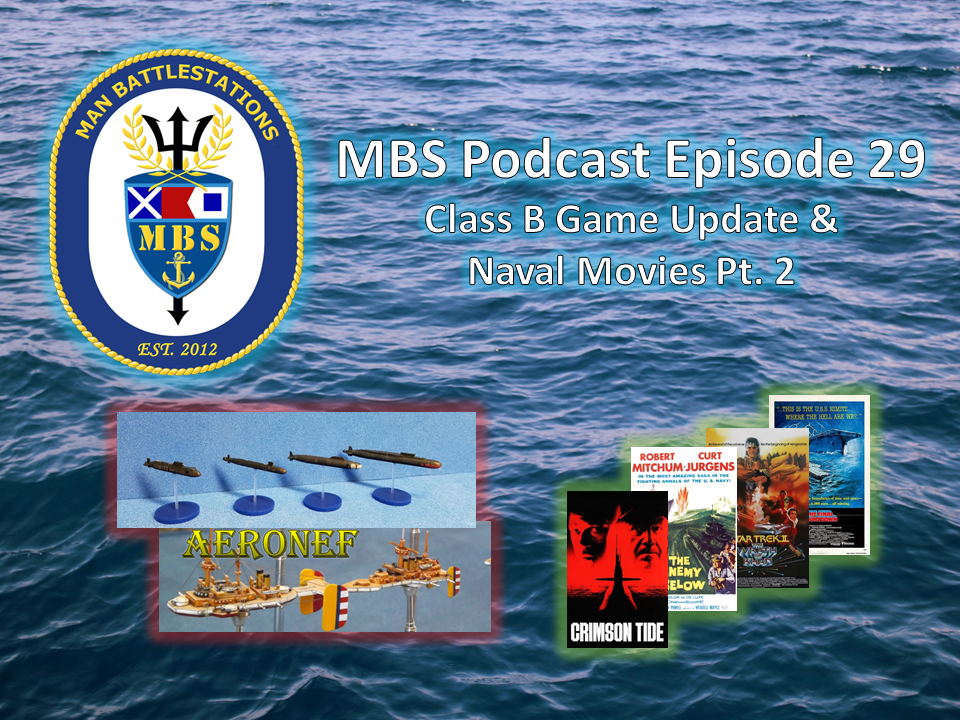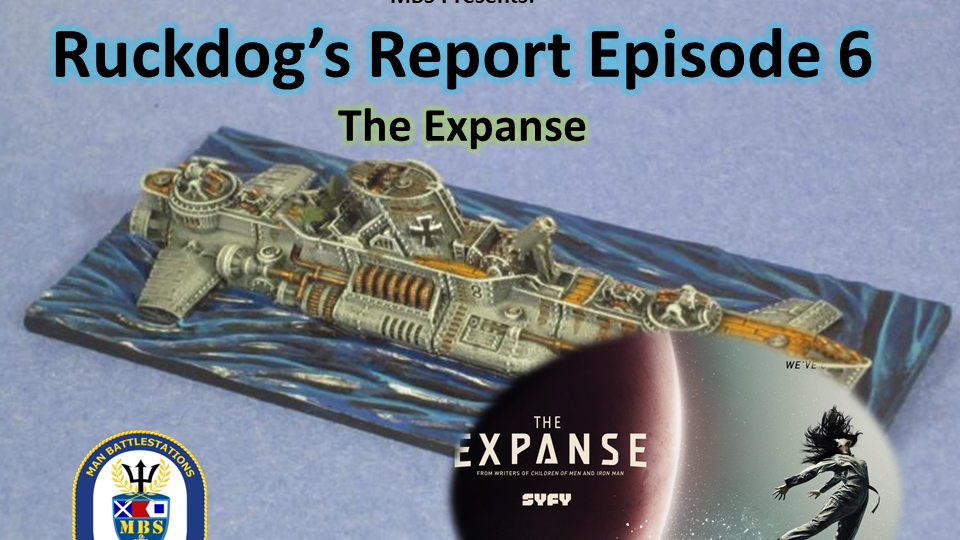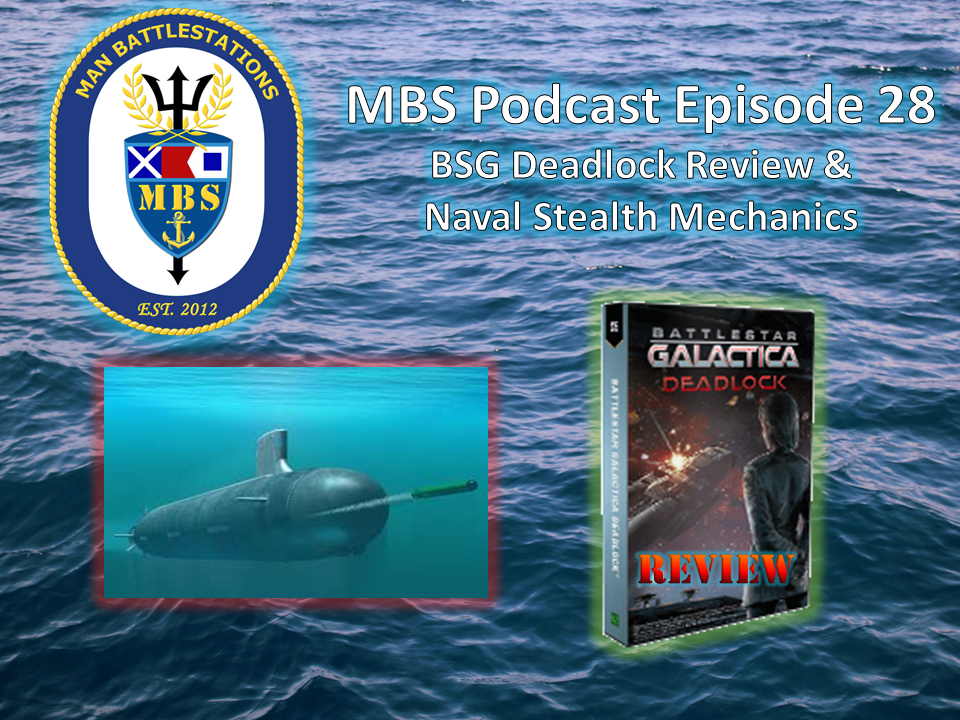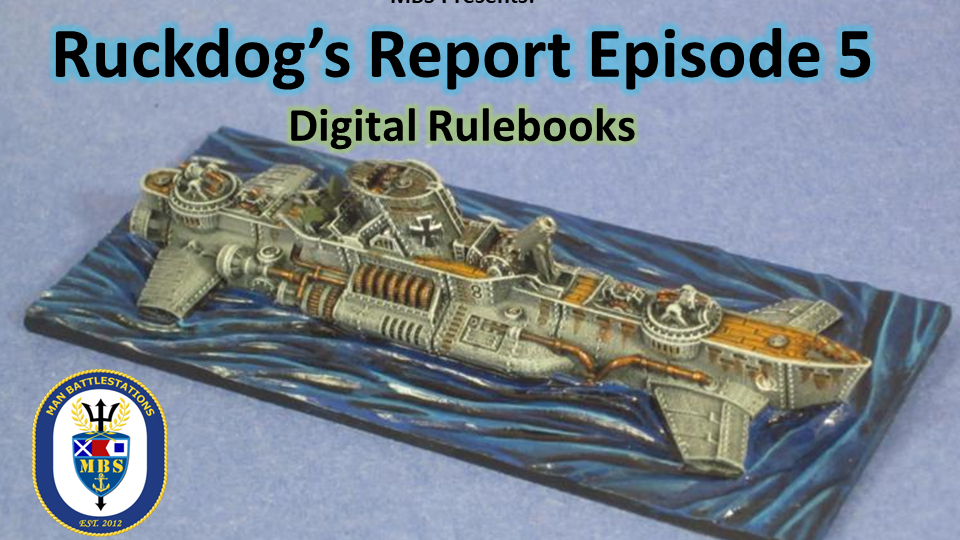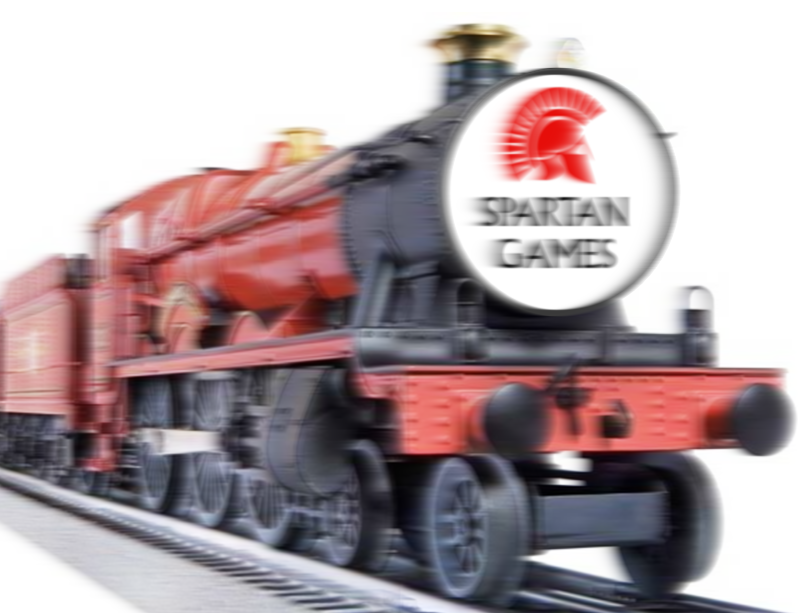 For all of its many virtues, a commonly heard complaint is that games based on the Spartan Engine take too long to play, especially Firestorm Armada (FSA) and Dystopian Wars (DW). This is not a universally heard complaint, to be sure. There are plenty of gamers who are no doubt happy with the play length for DW and FSA as-is. However, there was apparently enough demand for a “fast play” version of these games that Spartan decided to release Firestorm Taskforce (TF) and Dystopian Wars Fleet Action (FA), which were designed to allow gamers to play a game in their respective universes in less time than their “parent” games. Now, as it turns out, both TF and FA have some issues of their own, which Greg and I discussed a while back on the MBS podcast, but that doesn’t change the fact that Spartan apparently got enough feedback that its games were taking too long to play that they felt compelled to develop a new product to try and address the issue.
For all of its many virtues, a commonly heard complaint is that games based on the Spartan Engine take too long to play, especially Firestorm Armada (FSA) and Dystopian Wars (DW). This is not a universally heard complaint, to be sure. There are plenty of gamers who are no doubt happy with the play length for DW and FSA as-is. However, there was apparently enough demand for a “fast play” version of these games that Spartan decided to release Firestorm Taskforce (TF) and Dystopian Wars Fleet Action (FA), which were designed to allow gamers to play a game in their respective universes in less time than their “parent” games. Now, as it turns out, both TF and FA have some issues of their own, which Greg and I discussed a while back on the MBS podcast, but that doesn’t change the fact that Spartan apparently got enough feedback that its games were taking too long to play that they felt compelled to develop a new product to try and address the issue.
How Long does it take to play FSA and DW?
This seems like a reasonable question to ask at the outset. The problem is that when evaluating game length there is very little to go on other than anecdotal evidence, which is heavily influenced by personal perception. That being said, here are a few things I’ve noticed over the years.
- Familiarity with the rules drives gameplay length more for FSA and DW than with some other games. Obviously, with any game system the better the players know it the faster they will be able to play. However, the improvement seems to be more dramatic than usual for Spartan Engine games, perhaps due to the notorious layout issues of Spartan’s rulebooks.
- Given “normal” scenarios, most games of FSA or DW are pretty much decided by the end of turn 3. Turn 4 and later are usually only an exercise in “mopping up,” and tend to go much quicker due to the fact there is less for both players to do since so many models tend to be destroyed by then.
- In a tournament setting, a two hour round is generally sufficient for two players with a reasonable understanding of the rules to complete at least 3 turns (and hence reach a reasonable conclusion) assuming the points level is somewhere around 800-1000 points, but is generally not enough time to play a game to full completion.
- The time it takes to play a game of FSA or DW is directly proportional not just to the points level of the game, but also to the number of activations in each player’s force. In my experience, it is actually possible to play a 1200 point game in about the same amount of time as an 800 point game, provided the 1200 point forces are large/massive model heavy (which means that the overall number of activations is largely the same).
- It seems that DW typically takes longer to play than FSA at a given points level.
The net total of my experience is that given a basic scenario, a moderate points level, and players with a decent understanding of the rules, playing a game of FSA or DW through to conclusion (at least turn 5) will generally take around three hours. Of course, games can easily run longer if being played with larger forces, or if one or both of the players are less familiar with the rules, but in general I think that three hours is a reasonable working number for the length of an “average” game of FSA or DW. Certainly, that’s about the minimum amount of time I set aside when I’m planning a game session with someone. I have heard that some groups have been able to drop their play time to less than two hours with sufficient repetition, but I suspect that groups with that level of familiarity with the rules and unit stats are more the exception than the rule.
How Long is Too Long?
Now that I’ve established my rough metric for how long a game of FSA or DW will take to play, the next question to address is if that play length is excessive or not. And here, we’re taking a hard turn into the realm of the subjective! One gamer’s reasonable game length is another’s death slog. The challenge here is that one of the trends in the larger miniature gaming industry over the last 5 or so years has been towards smaller model counts and shorter game lengths. Fantasy Flight’s X-wing, for example, is both wildly popular and can be played in well under an hour. There have been a rise of skirmish games, such as Malifaux and Guild Ball that tend to feature similar play lengths. During the same time, there has also been an explosion in the popularity of board games, many of which have playtimes of two hours or less. At least superficially, then, there seems to be a big market in shorter-form games, which seems to have been the original target of FA and TF. That doesn’t mean that there is no market for longer-form miniatures games, though. Warhammer 40k, for example, seems to be as popular as ever (perhaps more than ever, since the changes Games Workshop has made in its business practices and the release of 8th Edition) despite having a play time of 2-3 hours for average sized games. Fantasy Flight’s Star Wars Armada, their capital ship Star Wars game, has a dedicated following and takes around 2 hours to play from what I gather.
There is certainly room out there for a FSA or DW game that takes 3 hours to play. Dedicated DW or FSA players (of which I consider myself to be one) will probably have no problem budgeting that amount of time to their games. I do perceive a problem, though, when it comes to those gamers for who FSA and DW occupy the “Secondary Game” space. That is, from my experience folks that primarily play one of the more popular miniatures games, like 40k or Warmachine, will often have forces for other miniature games in their collections that they can pull out on occasion for a change of pace. In this context, longer play times might very well be a detriment, as those gamers might be less inclined to pick up DW or FSA if they are looking for something that is simpler or takes less time to play than their main games. For that reason, I think 3 hours might be a bit too long, and it is worth looking at ways to reduce the play time of FSA and DW.
So, three hours is too long, but how much of a reduction is desirable? On the extreme end, we could try and take the play time of FSA and DW all the way down to less than an hour, to compete in the skirmish game market. This is the approach Spartan took with FA and TF, and while there were some flaws in their execution the overall result of their efforts were games that largely achieved their play time objectives. I generally like the systems, but I don’t think they represent a good way forward for the “mainline” FSA and DW rule sets; FA and TF just deviate too far from the core Spartan Engine to have the same feel and appeal as their parent games for my taste. Another downside is that FA and TF are so different from DW and FSA, respectively, that they do not serve as a good gateway or introduction to them. My own assessment is that trying to take the play time of FSA and DW down too far will result in too many undesirable compromises in their gameplay.
That’s not to say that no reductions can be made; to the contrary, I do think that a shorter play time of around two hours would pay some significant dividends and could perhaps be achieved without severely compromising the overall feel of the game play. At that game length, I think FSA and DW would gain more appeal as secondary games, thus expanding the potential pool of players.
Conclusion
Game length is definitely one of those topics where Your Mileage May Very, so I appreciate my readers sticking with this post all the way to this point! To recap, my estimation is that the “average” game of FSA or DW takes about three hours to play, and that game length limits the appeal of these games to gamers who are looking for a supplement to the “primary” game that they play. I also assess that trying to get FSA and DW play time down to X-wing levels would probably result in a compromised experience, though getting the playtime down to about 2 is probably achievable.
Of course, this brings us to the question of what, exactly, can be done to reduce the playtime of games based on the Spartan Engine, but that will have to wait until part 2. Until next time…

